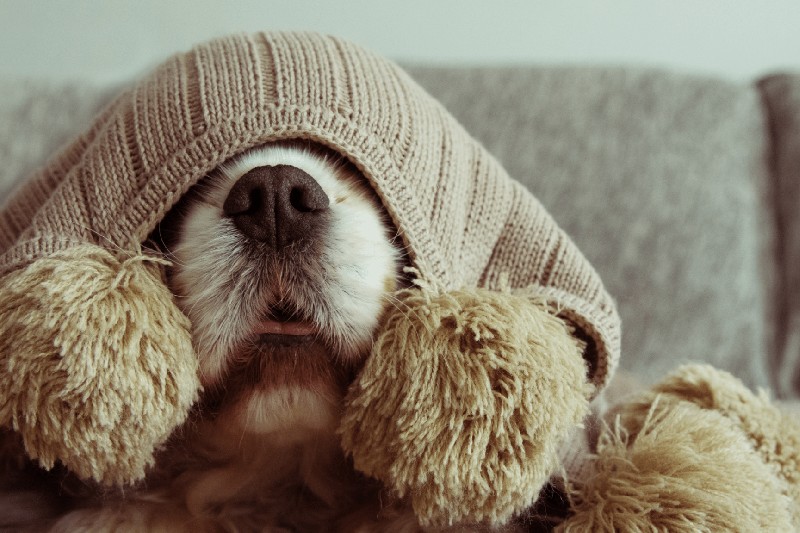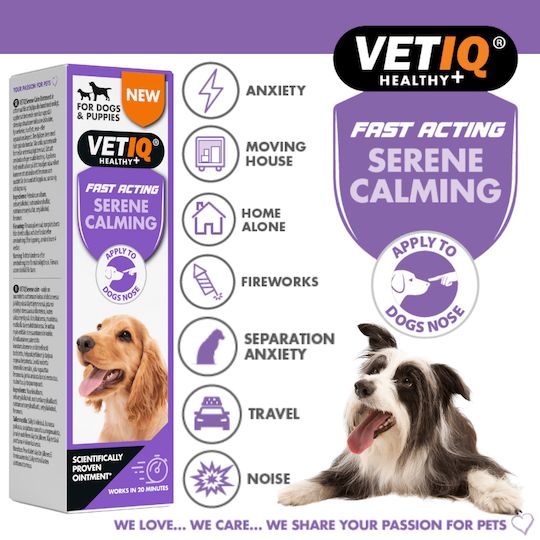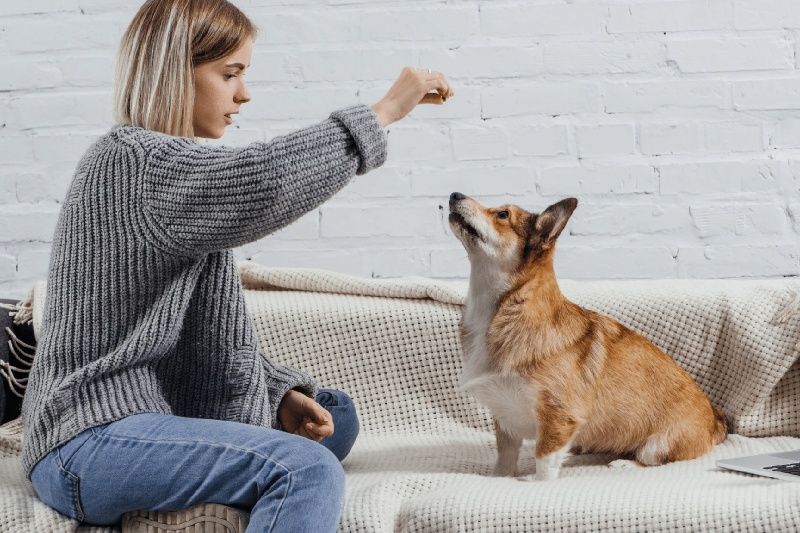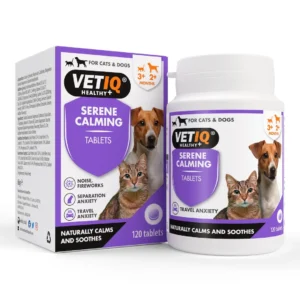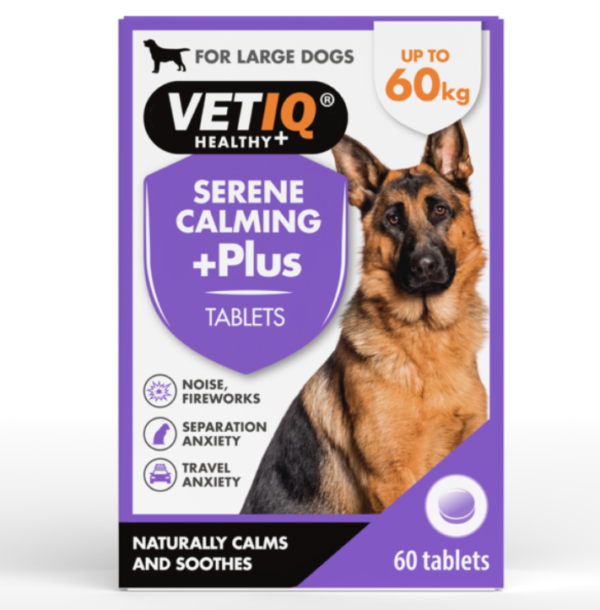Updated: August 2024 There are many natural and conventional treatments to calm dog anxiety. In this article, we are going to have a look at the best choice for your pooch to smooth their anxiety and provide both them and you with some relief.
Dog anxiety is real!
Just like humans, dogs experience stress. In fact, a study showed that more than 70% of dogs display anxiety-like behaviours. Unfortunately, many aspects of 21st-century life can increase these stress levels and can frighten our pooches.
Some of the stressors that cause dog anxiety include traffic noise, loud music, construction sounds and thunder or fireworks.
While many of these can be planned around, it’s important to realise that not all anxiety is triggered by simple circumstances.
Fear, phobia or anxiety?
It’s important to differentiate between fear, anxiety and phobia in our pets, although sometimes it can be difficult to tell.
For instance, when a dog feels they are in danger, it may exhibit short-term anxiety responses.
Situational Anxiety can be caused by fear of a perceived threat or situation, such as going to a vet or a fear of cars. Phobia falls under this bracket also where a dog has an overwhelming fear response tied to a specific trigger such as a storm or fireworks.
Another common type of dog anxiety is behavioural anxiety. This is ongoing, where your dog may act on edge constantly over something in particular. It is often caused by past trauma, abuse, loss of a loved one, change of environment or by being left alone for long periods.
Separation anxiety is a common example, where your dog feels stressed at any sign of you leaving. After all, dogs associate all the good things in their life – like eating and playing, with their human.
Common signs of dog anxiety
There are some common signs that your dog may be feeling anxious and some are easier to spot than others.
Here are some behaviours to keep an eye out for to understand when your furry friend is experiencing high stress levels:
- Destructive behaviour like chewing, peeing or pooping around the house
- Restless pacing
- Dilated pupils
- General agitation
- Excessive panting or drooling
- Constant whining, crying or barking
- Trembling and shaking
- Excessive licking
- Aggressive behaviour
- Refusal to eat or decreased appetite
- Hiding or trying to escape
- Excessive shedding
Many of these can be classed as ‘normal’ behaviours in dogs, if short-lived, but if you notice regular occurrences or extreme displays of any of the above, it might be a cause for concern.
It’s important to address any unusual behaviours from the beginning to avoid your dog developing extreme anxiety and identify ways to calm their stress.
If your dog feels anxious during fireworks season, this is one for the cupboard!
Tips to calm dog anxiety
Training your dog to reduce their anxiety
Over the long term, training your dog is the best solution to help reduce their anxiety. You can try to distract your pooch by giving them toys, petting them or completely removing them from the stressful situation.
You can also try counter-conditioning. This trains your dog to begin associating positive feelings with a specific trigger.
For example, if your dog is sensitive to loud noises, give them treats and show them affection after they hear a loud noise. This will help your pet to associate loud noises with positive feelings.
Natural treatments to calm dog anxiety
At VETIQ, we have a host of natural solutions to calm dog anxiety.
-
VETIQ Serene Calming 50G
£17.50 Subscribe & Save up to 20%! -
VETIQ Serene Calming Drops 100ML
£8.50 Subscribe & Save up to 20%! -
VETIQ Serene Calming 30 Tablets
£7.50 Subscribe & Save up to 20%! -
VETIQ Serene Calming 120 Tablets
£17.50 Subscribe & Save up to 20%! -
VETIQ Serene Calming +Plus 60 Tablets
£13.00 Subscribe & Save up to 20%! -
Healthy Treats Serene Calming for Small Dogs & Puppies
The Serene Calming Range includes tablets, drops, treats and more and can be a valuable tool to modulate your dog’s emotional responses during firework displays and VETIQ® Serene Calming Ointment is designed to provide fast relief within just 20 minutes.
Other alternative natural remedies are also available to calm dog anxiety, such as:
- CBD oil – this increases the ability to make serotonin, a natural mood stabiliser, and interacts with the nervous system to calm dog anxiety. It can be given to your dog in food or directly (read the instructions on the bottle) and it works quite quickly.
- Chamomile – is a gentle herb that is used for relaxation. It can be consumed as tea poured over your dog’s food or into their water, or a capsule placed directly in their food or opened up and put in food. It helps to relax and soothe your dog in stressful situations.
- Essential oils – lavender, violet leaf or hemp are some effective suggestions for calming dog anxiety. They must be diluted with carrier oil and can be sprayed on your dog’s blanket or diffused with a diffuser. There are many options and they can also be blended to find the best solution for your pooch.
It’s important to observe your dog’s behaviour to understand if they are experiencing fear, phobia or anxiety and choose the best treatment by trying different alternatives. Remember to consult a vet if you are unsure!
Your number-one source for pet advice
We love animals and we know you love yours, therefore we want to provide you with the best advice and products that we can.
With a little hard work and some patience, It is possible to reduce the anxiety that your beloved pooch feels and help them enjoy life a little more.
At VETIQ, you can always depend on us to provide you with the best dog care and tips, so check out our blog for more advice on how to give your dog the best life possible.
-
VETIQ Serene Calming 50G
£17.50 Subscribe & Save up to 20%! -
VETIQ Serene Calming Drops 100ML
£8.50 Subscribe & Save up to 20%! -
VETIQ Serene Calming 30 Tablets
£7.50 Subscribe & Save up to 20%! -
VETIQ Serene Calming 120 Tablets
£17.50 Subscribe & Save up to 20%! -
VETIQ Serene Calming +Plus 60 Tablets
£13.00 Subscribe & Save up to 20%! -
Healthy Treats Serene Calming for Small Dogs & Puppies





